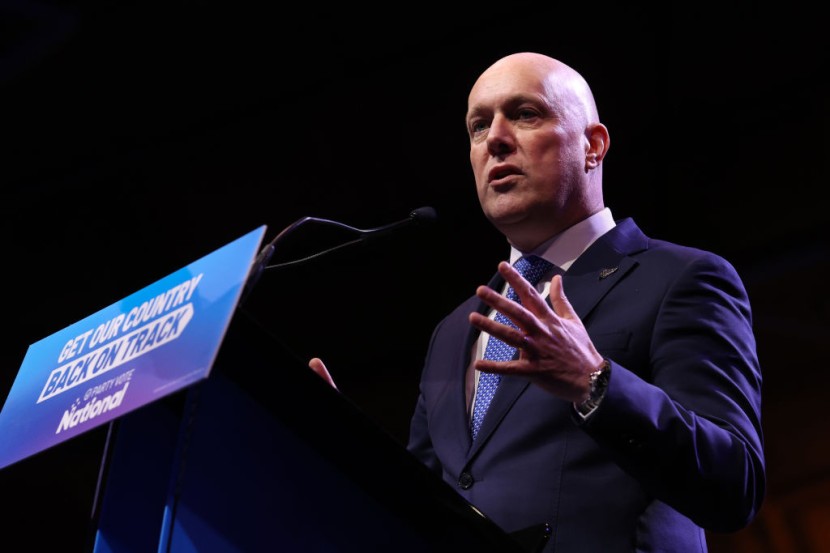Australia and New Zealand have affirmed their commitment to enhancing defense cooperation through the AUKUS partnership.
New Zealand Prime Minister Christopher Luxon, on his inaugural overseas visit since assuming office in October, met with Australian Prime Minister Anthony Albanese in Sydney to discuss the strengthening of bilateral security ties, as per to ABC News.
New Zealand's Luxon Explores Advanced Military

Luxon highlighted the importance of the AUKUS weapons development and procurement project, emphasizing its role in ensuring peace and stability in the Pacific region.
The leaders acknowledged the pivotal "pillar two" of the AUKUS pact, distinct from the first pillar focused on delivering nuclear-powered submarines to Australia. Luxon expressed interest in exploring the opportunities presented by AUKUS, particularly in advanced military technologies.
While New Zealand is not a party to the trilateral pact, Luxon reiterated the country's non-negotiable nuclear-free stance. Despite not participating directly in AUKUS, Luxon emphasized the significance of close security ties with Australia.
Both leaders reaffirmed their dedication to fostering collaboration with Pacific Island nations, taking into account the ever-changing challenges that the region faces.
Luxon and Albanese, two individuals with a prevalent working connection, recently engaged in a discussion regarding future plans. The main focus of their conversation revolved around the intention to organize a meeting between defense and foreign ministers from both countries in early 2024.
The main goal of this meeting would be to ensure that the two nations' strategic objectives are aligned and coordinated. Furthermore, they reinforced their shared commitment to addressing worldwide issues, including climate change, and fostering stronger economic and commercial ties.
The AUKUS partnership, initially signed between Australia, the United States, and the United Kingdom, has faced criticism from the Chinese government, and Luxon's predecessor, Chris Hipkins, emphasized New Zealand's anti-nuclear stance. Luxon, however, indicated an interest in exploring joint initiatives under "pillar two," involving the development of advanced military technologies, according to Reuters.
Luxon & Albanese Emphasize Regional Military Cooperation
The AUKUS pact's first pillar involves Australia obtaining a fleet of nuclear-powered submarines from the US, a move that sparked controversy and led to the cancellation of a previous deal with a French company. Luxon emphasized New Zealand's commitment to its nuclear-free position but expressed a desire for increased interoperability between the defense forces of both nations.
Despite historical tensions stemming from New Zealand's anti-nuclear policy, both Luxon and Albanese highlighted the potential for enhanced military cooperation, especially in responding to natural disasters.
They stressed the efficiency and practical benefits of increased collaboration, reflecting a broader effort to strengthen ties between the two nations.
Luxon concluded by announcing that Foreign Minister Penny Wong would meet her New Zealand counterpart after Christmas, underscoring the commitment to coordinated responses and aligned plans. The leaders acknowledged the strong people-to-people relationship between the two countries, with Luxon describing the personal ties as "close to my heart."
As the Indo-Pacific region faces increasing geopolitical complexities, the leaders of Australia and New Zealand are signaling a united front to address shared challenges and deepen defense ties in the interest of regional stability, SBS News reported.
Related Article: Pope Francis' Decision To Approve Blessings for Same-Sex Couples Receives, Praise, Criticism
© 2025 HNGN, All rights reserved. Do not reproduce without permission.








